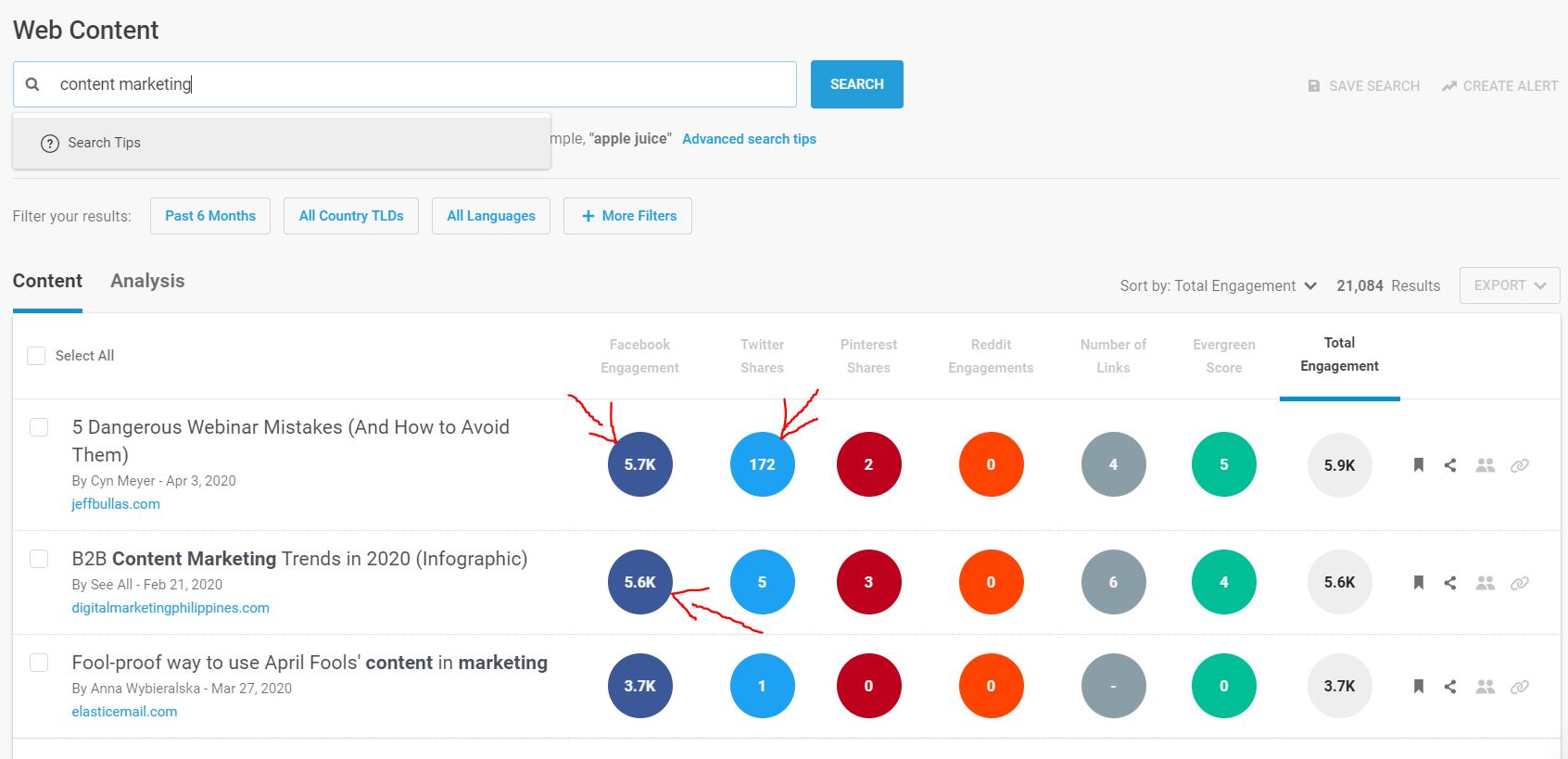7 Tips on How To Write Good Content in 2024

Not knowing how to write good content for your website or blog can prove to be a big mistake, for many reasons.
I will shortly go through some of these reasons before I tell you all about the methods that you need to know in order to learn how to write good content in 2024.
Note: We’ll ignore AI content writing for this article as this was an older guide from the times before AI and AI content took over the internet.
Reason #1 for learning how to write good content:
SEO… Good old free organic traffic. Your content needs to be amazing in order to outrank your competition. 300-500 word articles won’t cut it anymore in this day and age. Oh, and we won’t talk about copy/pasted content or other trash like that that you should already know not to do.
Reason #2 for learning how to write good content:
Increasing conversions. Almost all the websites that you will find online have in common one thing: They all need conversions.
It doesn’t matter if it’s an affiliate marketing website, a personal blog, a company website, or a non-profit organization website. Everyone needs to increase conversions in one way or another.
There are many types of conversions out there, but the most popular being:
- Getting new subscribers to a newsletter
- Collecting leads
- Making sales
You can increase your conversions exponentially, simply by having better articles on your site. So this is why it’s important for everyone that is posting online to learn how to write good content for their website.
Ok, so now that you know all of that, let’s go over the actual tips:
1. Optimize your content for SEO

Even if you know how to write good content, you might still make the mistake of not optimizing it for SEO.
Make sure your article has:
- The main keyword added in the title and first paragraph
- Related keywords all throughout the content
- Images with alt attributes with your main keyword
- Headings with the keyword in them (don’t overdo it though)
- Links to other relevant websites
- Minimum of 800 words
Almost all of them are pretty easy to implement, especially if you use SEO plugins on your site…
However, most writers will have problems with one single thing: Word count.
Times have changed, and you can no longer rank easily in Google (for relatively competitive keywords) with articles that have 300-500 words.
For years, content marketers have pushed the same number: Minimum 500 words per article. And it seems that the general public has seen that 500 number and ran with it, writing articles that are no less and no longer than 500 words.
Nowadays, if you want to rank high in search engines for competitive words, you need more words… much more than 500.
A while back, Backlinko published an article where they analyzed close to 12 million google search results, to find out what all the pages ranking in the top 10 of Google have in common.
One of the things they have researched was also on the topic of word count.
So they found out that all the pages showing up in the top 10 search results of Google have content with an average word count of 1448 words.
That’s impressive, but it also makes sense.
When almost everybody online is writing short articles that are barely even reaching 500 words, Google has no choice but to look for more in-depth articles and guides.
They rank these longer word count articles higher than the short ones, simply because they want to provide the visitors with the best value and solutions for the terms that they have searched.
In their mind, longer content means higher authority and quality, and 99% of the time, that’s correct.
Sure there are websites out there ranking in top 3 positions with only 300 or 500 words, but that’s not the norm, and it’s not an easy thing to pull off, especially in competitive niches.
So the bottom line is, if you care about SEO and organic traffic (and you should), then you should try your best and increase your word count on all your articles.
So yeah try to write good content that has a minimum of 800-1400 words if you can, it will help you in the long run.
2. Write Great Article Headlines

If you’re headline sucks, that’s it. Game over.
A visitor will leave your site in about 3 to 5 seconds if you don’t grab their attention from the first second they land on your site.
So you could have articles that have 10,000 words, without an amazing headline, and opening paragraph, nobody would go through it.
There’s a reason why clickbait headlines work, whether they are on youtube videos or regular articles on sites like BuzzFeed, and even online marketing.
They grab your attention and they spark your curiosity from the moment you read out that headline in your head, so you have to click on it, in order to satisfy that damn brain of ours.
Add numbers at the start of your headline, so, for example, I wrote a blog post about Best Google AdSense Alternatives.
I could have simply left it like that, but instead, I’ve added “22” in front, and now a visitor will instantly know that they should expect to find 22 Google AdSense alternatives, thus giving them a sense of security that if they don’t like one or two of them they still have 18 or 20 solutions left.
If you talk about how much money you made or how much you spent on something, it’s also good sometimes to add that sum in your headline.
For example instead of: I make money selling tiny hats for cats, you could turn it into How I made $90,000 selling hats to cats.
I know which one I would click… and I think yours would be the same.
Don’t forget to add your main keyword in the headline and your first paragraph though. That still is very important in terms of on-page SEO if you want to give your freshly written article a chance to rank in Google.
3. Make your content easy to read

This one is not that difficult to do, but it requires a bit of practice to get the hang of it.
Basically, you don’t want to have large blocks of paragraphs without spaces, images, or any other divider in between.
See how I write all these articles? With short sentences and paragraphs and then I go to a new line? That’s because it makes it easier for visitors to skim through and see all the points that they care about in a few seconds.
Then if they decide the content is good for them they will stop and read the whole thing. It’s also better on the eyes and overall format of the blog.
Many tests have been done on how a user interacts with a webpage, and most of them came to the same conclusion, people just scroll past all the B.S and look for the important things first.
You need to have SCANNABLE text… in all your articles.
This basically means that you should incorporate:
- Bullet points
- Numbered lists
- Bold sentences
- Short paragraphs (one idea per paragraph is usually the best)
- Make use of different sub-headings correctly (h1, h2, h3, etc)
- Highlight keywords and important things
- Sometimes it’s also better to start an article with the conclusion
Website visitors are busy, they have different things to worry about in their life, so they need to be able to scan your content and decide if it’s worth reading it for a few minutes or not.
4. Research before you write

You have an idea for a new blog post, great. But before you start typing a single word, you should do some research first.
The first step is to find out your main keyword and related keywords that you will have to write about in your content. So you do that by using tools like Semrush, Ubersuggest, Ahrefs, or any other keyword tool that you like.
Search what others have written on the subject…and improve it.

Use tools like Buzzsumo to quickly find out what others have written about your subject and see which of these articles are being shared the most on social media networks.
If certain content pieces are being shared a lot online, that means that they have done a great job and that you should try and figure out how they did it and what you could add on top of that in order to create even better content yourself.
You want to be original and have your own voice but also add things that others have forgot or simply did not know about in your content.
5. Know your audience

This one is kinda similar to the research tip, but it’s a bit different, and here’s why.
Every blog’s audience is different, what some readers might find interesting on other blogs and websites that are related to your niche, will not particularly make them interested in yours also.
They are on your site for a reason.
Know what your visitors are most interested in, and try to write good content that is specific to them.
If you have a blog writing about Toyota Camry, don’t go now and write content about BMW M4, because your audience won’t be interested in that.
Treat all your articles as a direct communication line between you and your readers. Ask questions, encourage them to leave feedback and comments, and make it engaging and unique.
Stick to the topic, and the things that are related to it, and try to provide as much value for your audience as you can.
Related: Soft Selling vs Hard Selling
6. Add images, quotes & videos to your content

Writing great content is good and all, but you also need to sprinkle in some images and videos to make your article more engaging and popping for your visitors.
Images are helpful, especially if they act as a divider between longer paragraphs or headings. You can also drive your point across faster by showing it in an image or a video.
When in doubt… use memes.

Memes are amazing, and these days even fortune 500 companies use memes as a marketing tool. From news sites to manufacturing companies to fast food places, we’ve seen memes all over the place.
7. Edit your work before you publish it.

Ok, so you’ve learned how to write good content and now that you’ve done it, you’re ready to hit that “Publish” button.
Not so fast…
Make sure to review and edit your content before you make it available for everyone else. Most often than not, you will make mistakes, even if you are writing your content in your native language, sometimes errors can be made.
That’s why it’s better to proofread everything before you publish your new content.
Use tools like Grammarly, to help you correct all your grammar errors, writing mistakes, it proofreads your whole content and makes suggestions that are beneficial for your article, and also it can check and see if your article is plagiarizing someone else works.
Conclusion: Learning How To Write Good Content
Learning how to write good content is key if you want to succeed online. I’m sure you’ve heard this phrase before:
Content is KING
And it’s true, your content matters a lot and can impact many things: Your audience, your SEO and organic traffic, your conversions, your paid marketing campaigns, etc.
I hope these 7 tips help you out, and if I forgot something or you know some great tips also, let me know by leaving a comment down below.
Alright, peace…
Stephen





Good content is the name of the game… More now then ever, your average consumer is sick of seeing the “same old stuff’ time and time again from every influencer and content creator. It’s time for the long term content that’s FULL of value, to be shown to be king! Onwards to read more from you 🙂 Told you I would!
That’s true, especially since the “gurus” have been going at it for 20+ years now :). Unfortunately I haven’t had too much time in 2022 for this blog, been busy scaling other projects, but maybe 2023 will be different. Cheers Jon.